Feature/OPED
Johannesburg Summit: A Critical Look at BRICS and Africa
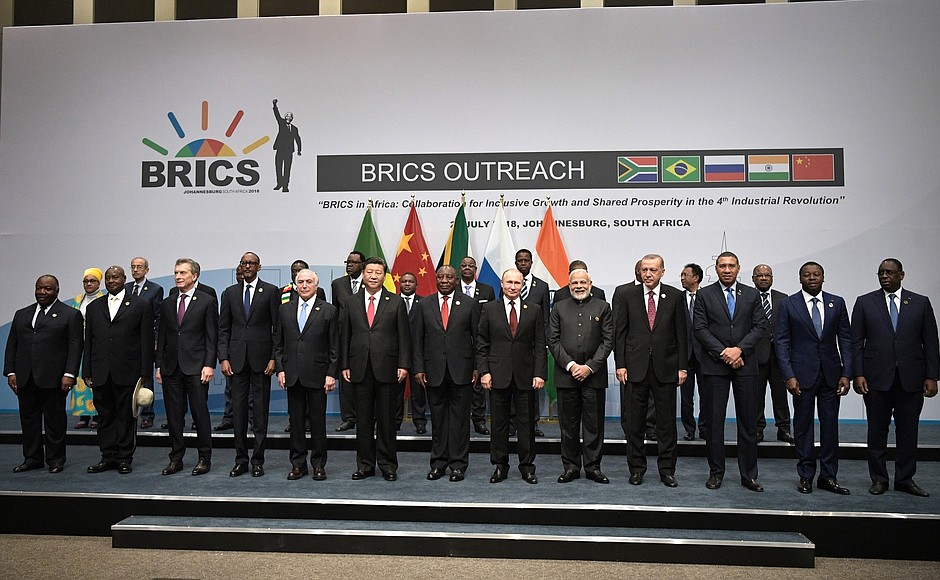
By Professor Maurice Okoli
Undoubtedly the forthcoming 15th BRICS (Brazil, Russia, India, China and South Africa) summit on August 22 – 24 in Johannesburg, South Africa, opens the door for multiple critical issues mostly relating to the irreversible processes of the emerging new world. While it seriously presents an opportunity to take meticulous stock of its wins and losses, strengths and weaknesses, the summit has the imperative to examine the new paradigms, evaluate innovative directions and assess strategies for moving the organization further in this re-configuration world.
The BRIC concept was created by the Goldman Sachs economist Jim O’Neill and the “S” was added after South Africa joined the group in 2010. But the first meeting of the group began in St Petersburg in 2005. It was simply referred to as RIC, which stood for Russia, India and China. Then, Brazil and, subsequently, South Africa joined later, which is why it is now popularly called BRICS. As rotating chair, South Africa first held the summit in 2013 in Durban, the second in July 2018 and now the third in August 2023.
Durban hosted African leaders, heads of the G20, representatives of the Organization of Islamic Cooperation and the Caribbean Community. Since then, BRICS Five and African States have greatly strengthened and expanded their cooperation in the economy, politics and the humanitarian sphere. BRICS considers Africa is one of the world’s most rapidly developing regions.
During the summit in South Africa, Russian President Vladimir Putin attended a meeting of BRICS leaders with delegation heads from invited African states and chairs of international associations. Those invited included leaders from Africa, namely Angola, Botswana, Ethiopia, Gabon, Lesotho, Madagascar, Mauritius, Malawi, Mozambique, Namibia, Rwanda, Senegal, Seychelles, Tanzania, Togo, Uganda, Zambia and Zimbabwe.
I would like to remind and further emphasize that BRICS and the African States have similar development goals in many respects. In 2015, the BRICS summit in Russia adopted the large-scale BRICS Strategy for Economic Partnership. In fact, during that gathering, Putin’s position was about involving African partners in the areas identified then: the economy, finance, and food security.
It was also based on the fact that Russia has always given priority to the development of relations with African countries based on long-standing traditions of friendship and mutual assistance. Notwithstanding the long list of pledges at the meeting in July 2018, a considerable part of the Russian initiatives was for localizing industrial businesses in Africa. Russia has consistently advocated for deepening the organization’s interaction with the African continent. It was at that meeting that Putin, for the first, mentioned the idea of holding a Russia-Africa summit with the participation of heads of African States.
Expanding BRICS Membership
With the forthcoming August 2023 summit, heated discussions and debates have been on the organization’s expansion, adoption of alternative currency and various proposals to redesign its architecture with new comprehensive objectives and tasks within the context of the current geopolitical changes. This growing enthusiasm and interest in the BRICS has various underlying motivations, which have to be accommodated within the broader framework. There is a strong common motive for forming an alliance in a multipolar world.
As several media reports show, in my own monitoring and research assessment, a large number of Asian, African and Latin American States are interested in forging a full-fledged structural membership and possible cooperation with the BRICS. More than 20 States have formally applied to join BRICS. The authentic criteria and mechanism for the expansion of the organization is being developed.
South Africa’s term as the rotating Chair of BRICS ends this August, as stipulated by the guidelines and rules, and will pass on the baton to Brazil. This implies that South African President Cyril Ramaphosa has a lot more at hand at this last-minute crucial moment. Tracking the developments of the organization, especially this 2023 presidency of South Africa, there have been so many controversial questions which are still currently receiving enormous attention, including South Africa’s relationship with Russia, BRICS common currency, as well as other global issues.
According to reports, BRICS is steadily or rather rapidly becoming an alternative organization for the Global South against the backdrop of the accusations of the United States and Europe, together with their allies’ political dominance, hegemony and unipolar or unitary approach towards global problems, and especially those adversely affecting the developing or the least developed nations. The emphasis is on geopolitical and development cooperation with non-Western States appears to be sliding, and BRICS is now attracting friends. Those lined-up states are consolidating their growing desire to join BRICS.
Johannesburg summit, therefore, has the primary tasks now, developing along two aspects: by admitting new members and by strengthening cooperation of BRICS with potential new members. The possibility of expanding membership (for purposes of determining the principles, standards, criteria and procedures of this process) in the organization is still under discussion within the BRICS framework.
China and Russia have seemingly been pushing for the expansion of BRICS, soliciting support for the multipolar system of global governance instead of the existing rules-based unipolar directed by the United States. Often explained that a bigger BRICS primarily offers huge opportunities among the group members and for developing countries.
On the other side, BRICS researchers and analysts argue and believe that additional States will not be admitted to BRICS, but each organization’s partner has the chance and will be able to choose a convenient mode of cooperation within the BRICS+ new structure. The argument holds the fact regarding re-titling BRICS. Therefore, it is highly likely to be the case, but this requires a consensus of all the members of BRICS.
More countries have become interested in joining the group: Afghanistan, Algeria, Argentina, Bahrain, Bangladesh, Belarus, Egypt, Indonesia, Iran, Kazakhstan, Mexico, Nicaragua, Nigeria, Pakistan, Saudi Arabia, Senegal, Sudan, Syria, United Arab Emirates, Thailand, Tunisia, Turkey, Uruguay, Venezuela, Zimbabwe. This growing interest in the BRICS project has various underlying motivations, which have to be accommodated within the broader framework.
In advancing the discussion here, interesting to remind here that during the 14th BRICS summit successfully held in June 2022, President Xi Jinping emphasized at the meeting that BRICS countries gather not in a closed club or an exclusive circle but a big family of mutual support and a partnership for win-win cooperation. At the same summit, BRICS leaders reached an important common understanding about BRICS expansion and expressed support for discussion on the standards and procedures of the expansion.
Africa’s Alliance with BRICS
South Africa, the first African State, joined the group on the initiative of China and Russia. Its membership has reflected and altered the organization’s name, now known as BRICS. It has, since then, played significant roles in hosting summits, influencing the organization’s activities, and creating historical milestones in this 21st-century world. South Africa can warmly be credited, first for its membership presence and second for laying the pathways for strategic expansion plans to include the African States. At least, South Africa has brought a tectonic shift in landscape, a transformative aspect when African States participated in BRICS plus Outreach in July 2018.
Russian President Vladimir Putin attended a meeting of BRICS leaders with delegations from invited African states and chairs of international associations in July 2018. And BRICS documents show the participating leaders of African States as Angola, Botswana, Ethiopia, Gabon, Lesotho, Madagascar, Mauritius, Malawi, Mozambique, Namibia, Rwanda, Senegal, Seychelles, Tanzania, Togo, Uganda, Zambia and Zimbabwe.
In practical terms, BRICS has recognized and welcomed Africans into its fold long ago. “I am grateful to the President of the Republic of South Africa for organizing this representative meeting. In 2013 in Durban, BRICS leaders held a meeting with the heads of African states for the first time. We know that Africa is one of the world’s most rapidly developing regions, so its representation is important for BRICS,” Putin said in his introductory speech. In awakening reality, African States are still seeking greater representation and louder instrumental voices on international platforms, including the Group of Twenty (G20) and the United Nations.
BRICS, together with the majority of the African States, the African Union, and all the Regional Economic Communities (RECs), are getting involved to halt the system of unipolarity. Without a doubt, Africa has a common vision and unflinching interest that BRICS plays an essential role on the global multilateral stage. This Global South political movement consistently presents a fundamental coherent challenge to the West.
Dilma Rousseff at Russia-Africa Summit
At the Russia-Africa summit held late July 2023, during the high-profile line-up of speakers during the plenary session, former President of Brazil from 2011 to 2016 and now the new President of the BRICS New Development Bank (NDB), Dilma Rousseff, reaffirmed BRICS position towards building a more multilateral and multipolar world.
The BRICS New Development Bank, now also includes Egypt, Bangladesh and the UAE, supports the development initiatives of developing nations on all continents just as other regional development banks do. These nations can count on agreements on using national currencies in trade transactions, according to Rousseff, the first female to hold the position.
The New Development Bank was established just eight years ago, in 2014, at the BRICS summit in Fortaleza. This bank is often called the BRICS bank because it was established by the will of the five BRICS members, but it has already outgrown this framework and is not limited to just these members. It works towards ensuring sustainable development and eliminating the threat of poverty and famine and in the spirit of true multilateralism. The bank is working to share experiences and best practices of sustainable development.
Rousseff, however, stressed the fact that in loaning its funds, the bank is not dependent on external factors. The bank provides a platform for the development of the Global South. In this sense, the developing nations of all continents, especially Africa, Latin America and Asia, are its strategic partners.
She believes participants should not be affected by problems that may arise in Western markets, and for this reason, it is developing its own transaction systems. The NDB receives money in different markets and in the currencies of all developing nations, not only in dollars or euros. The NDB has already approved 98 projects in member states, amounting in total to about US$35 billion. It cooperates with the African Export-Import Bank and other banks engaged in economic and social development. It implements infrastructure and logistics projects aimed at improving living standards in the BRICS members.
We perfectly understand that the proposed expansion has admirable and beneficial geopolitical importance. Worth noting here that African States are readjusting their place in the multipolar world, moving to new emerging multinational centres such as BRICS. For many from Africa, it is an opportunity for something much newer within the spectrum of their internal development paradigm. Therefore, it has become increasingly attractive as a new stage for diplomacy and development financing.
In fact, reviewing and analysing the current emerging developments, especially for the Global South, Africans are now describing it as an organization that can challenge the dominant United States and European-led global governance structures. And of course, there are also several arguments that China and India are equally emerging powers. There are visible signs that both consider Africa as their new playground, and will probably compete with each other to ‘impress’ Africa with goodies like aid, soft loans or trade.
The NDB and BRICS Common Currency
Records indicate that BRICS are under-represented in the global financial architecture. Europe and the United States dominate institutions like the International Monetary Fund (IMF) and the World Bank. Fully aware of this shortfall, BRICS established in 2015 its own National Development Bank. The idea for setting up the bank was first proposed by India at the 4th BRICS summit in 2012 held in Delhi, but was finally created three years later. It is a multilateral development bank established with an initial capital of US$100 billion. According to its stipulated primary functions, NDB has to cooperate with international organizations and other financial entities and provide technical assistance for projects to be supported by the Bank.
With the current global unstable and volatile situation creating skyrocketing uncertainties in global economic recovery, China has unreservedly shown its contribution to strengthening BRICS. Despite its large population of 1.5 billion, which many have considered as an impediment, China pursues admirable collaborative strategic diplomacy with external countries and among the BRICS.
For 16 years since its inception, China has offered the largest financial support for the BRICS National Development Bank and contributed tremendously to other directions, including health, education and economic collaboration among the group. That is one reason why BRICS has gained extensive recognition.
More and more countries are willing and interested to become members of the organization, make joint efforts to overcome difficulties and challenges and realize common development and prosperity. BRICS activities have expanded during the past few years. Now many States participated in the Outreach and BRICS plus segments of the organization. But now, with the emerging new global order, BRICS seeks to expand its membership and consolidate its platform as an instrument for pushing against the existing rules-based order unipolar system.
A careful study and analysis monitored show that BRICS activities have expanded during the past few years. States participated in the Outreach and BRICS plus segments of the organization. There are also a number of African countries, including Algeria, Ethiopia, Nigeria, Senegal and Zimbabwe that have also shown interest. Uruguay is part way through the process of joining, while Argentina, Cuba, Honduras and Saudi Arabia and a number of Asian States have expressed desire. Bangladesh, the United Arab Emirates and Egypt have joined since 2021, bringing its membership to eight. Egypt has already been involved for a fairly long time. Last December 2022, Egypt, the decision on its accession to the New Development Bank was made by BRICS.
According to media reports, Ennahar TV quoted Algerian President Abdelmadjid Tebboune as saying that Algeria has applied to join the BRICS group and submitted a request to become a shareholder member of the BRICS Bank with an amount of US$1.5 billion.
In July, Tebboune visited China and sought to join the BRICS to open new economic opportunities. Algeria is rich in oil and gas resources and seeking to diversify its economy and strengthen its partnership with members such as China. Already China plans to invest US$36 billion in Algeria across sectors including manufacturing, new technology, the knowledge economy, transport and agriculture.
Charles Robertson, Chief Economist at Renaissance Capital, argues that “Russia and others in the BRICS would like to see larger power centres emerge to offer an alternative to that Western dominated construct. That is reasonable enough – providing there are countries with the money to backstop the new institutions, such as China supporting the BRICS bank, and if the countries offer an alternative vision that provides benefits to new members.”
In today’s changing conditions, BRICS has been very concerned about de-dollarization and strongly advocating for its own currency. Thus in the discussion on 26 July 2023 in St. Petersburg, Putin stressed doubtlessly that Rousseff used her rich experience in public work and knowledge in this area to develop the institution. In today’s conditions, this is not easy to do, given what is happening in world finance and the use of the dollar as an instrument of political struggle. But the members of BRICS are not ‘friends’ against someone; they work in each other’s interests. This applies to the financial sector.
“In general, we are good participants in this organization; we fulfil everything on time, all our obligations to it. We know that there is a question about the liquidity of the bank, there are some ideas that come from you, from your staff, and we will support this,” Putin said at the meeting with her. “Relations between BRICS members are developing in national currencies, and settlements are increasing. In this regard, the bank can also play a significant role in the development of joint activities.”
Putin’s Perceptions of BRICS and Africa
In late July 2023, when the second Russia-Africa summit was held, Russian President Vladimir Putin underlined Africa’s new role and remnants of colonialism in the continent. Putin explicitly explained that Africa is turning into “a new centre of power,” and everybody will have to reckon with it. “The era of the hegemony of one or several countries is receding into the past” – “however, not without resistance on the part of those who got used to their own uniqueness and monopoly in global affairs.”
Without missing words, Putin unreservedly shared his objective thoughts, and Africans know these trends across the continent over the years. The situation in many regions of Africa still remains unstable, particularly due to the West’s ‘divide and rule’ policy. This is why Russia, with consistency, favours or advocates for expanding the role of African representation, for instance, in the UN, including the Security Council: “It is high time to remedy historical injustice.”
Taking a clear position on issues that affect the entire continent will be more productive. Moreso, with the process of geopolitics rapidly shifting, African leaders have to assess their external relationships in the context of their national and cultural sovereignty to play a more active role in resolving regional and global challenges.
At this point of the analysis, it is also very necessary to take a glance look at BRICS members’ performance with Africa. Over the last two decades, partnerships with Africa have become central to China’s geostrategic objectives. It has made significant investments to secure favourable media coverage to promote a positive view of China and to counter the influence of the United States.
As a strong member of BRICS, it has used the media to improve African perceptions. India and Brazil are doing something similar but on a comparatively lower scale. Smart African States, in an attempt to reset relations with global powers, are equally capitalizing on these new opportunities to improve aspects of development for the impoverished population. Whatever the case, the potentials exist for African leaders to explore. BRICS in this emerging world has diverse opportunities for industrial, economic, agricultural, commercial and financial development.
Johannesburg as Summit Venue
The 15th summit will also discuss the expansion of the bank, which has admitted the United Arab Emirates, Bangladesh and Egypt as members. Nevertheless, most of NDB related questions are on the agenda during the 15th BRICS summit scheduled for August 22 – 24 at the Sandton Convention Centre in Johannesburg, South Africa.
That BRICS has the potential of becoming a global player is a fact since more intend to join the group, and if we look carefully, each of them has significant assets to contribute: some have huge financial potential, others have huge demographic potential, others have expertise in particular industries. BRICS is simply consolidating its position to control economic development on a global scale and to vehemently oppose Western values and U.S. hegemony.
For China, this summit is a new opportunity to present its current projects, as well as its new initiatives, such as GDI (Global Development Initiative), GSI (Global Security Initiative), GCI (Global Civilisation Initiative). The already ten-year old Belt-and-Road Initiative (BRI) currently covers 147 countries with more than 3,000 projects worth trillions of dollars.
Ahead of the summit, South Africa’s Anil Sooklal said in a lecture at the University of KwaZulu-Natal that so far, representatives from more than 70 nations have been invited to attend, necessary security arrangements have been made, and other pre-visit formalities have been completed. And that Russia’s Vladimir Putin will participate via video (virtual) format. “This will be the largest gathering with foreign nations from the Global South coming together to discuss the current global challenges,” Sooklal said.
South Africa’s Foreign Ministry confirmed that Russia would be represented at this month’s BRICS summit by Foreign Minister Sergei Lavrov after President Vladimir Putin decided not to attend in person due to a warrant for his arrest issued by the International Criminal Court (ICC) for alleged war crimes in Ukraine. Kremlin also said an official decision reached “by mutual agreement” allows Putin to skip in-person participation.
South African President Cyril Ramaphosa has repeatedly said that BRICS as a dynamic group would usher in a new global development era that promises a system of more inclusive, sustainable and fair principles. BRICS group, in an expanded form, can support a sustainable and equitable global economic recovery.
Ramaphosa further believes that the BRICS is simply a highly-valuable platform fixed to strengthen ties with partner States in support of economic growth, development process for discussing global economic problems and challenges, and above all, for strengthening the role of developing States in the emerging multipolar world.
Formed officially in 2009-2010, the organization has struggled to have the kind of geopolitical influence that matches its collective economic reach. It also embodies a synergy of cultures and explores a model of genuine multilateral diplomacy. Its structure is formed in compliance with 21st-century realities. Efforts within its framework are based on the principles of equality, mutual respect and justice. BRICS (Brazil, Russia, India, China and South Africa) collectively represent about 26% of the world’s geographical area and about 42% of the world’s population.
Professor Maurice Okoli is a fellow at the Institute for African Studies and the Institute of World Economy and International Relations, Russian Academy of Sciences. He is also a fellow at the North-Eastern Federal University of Russia. He is an expert at the Roscongress Foundation and the Valdai Discussion Club.
As an academic researcher and economist with a keen interest in current geopolitical changes and the emerging world order, Maurice Okoli frequently contributes articles for publication in reputable media portals on different aspects of the interconnection between developing and developed countries, particularly in Asia, Africa and Europe. With comments and suggestions, he can be reached via email ma***********@***il.com
Feature/OPED
Revived Argungu International Fishing Festival Shines as Access Bank Backs Culture, Tourism Growth

The successful hosting of the 2026 Argungu International Fishing Festival has spotlighted the growing impact of strategic public-private partnerships, with Access Bank and Kebbi State jointly reinforcing efforts to promote cultural heritage, tourism development, and local economic growth following the globally attended celebration in Argungu.
At the grand finale, Special Guest of Honour, Mr Bola Tinubu, praised the festival’s enduring national significance, describing it as a powerful expression of unity, resilience, and peaceful coexistence.
“This festival represents a remarkable history and remains a powerful symbol of unity, resilience, and peaceful coexistence among Nigerians. It reflects the richness of our culture, the strength of our traditions, and the opportunities that lie in harnessing our natural resources for national development. The organisation, security arrangements, and outlook demonstrate what is possible when leadership is purposeful and inclusive.”
State authorities noted that renewed institutional backing has strengthened the festival’s global appeal and positioned it once again as a major tourism and cultural platform capable of attracting international visitors and investors.
“Argungu has always been an iconic international event that drew visitors from across the world. With renewed partnerships and stronger institutional support, we are confident it will return to that global stage and expand opportunities for our people through tourism, culture, and enterprise.”
Speaking on behalf of Access Bank, Executive Director, Commercial Banking Division, Hadiza Ambursa, emphasised the institution’s long-standing commitment to supporting initiatives that preserve heritage and create economic opportunities.
“We actively support cultural development through initiatives like this festival and collaborations such as our partnership with the National Theatre to promote Nigerian arts and heritage. Across states, especially within the public sector space where we do quite a lot, we work with governments on priorities that matter to them. Tourism holds enormous potential, and while we have supported several hotels with expansion financing, we remain open to working with partners interested in developing the sector further.”
Reports from the News Agency of Nigeria indicated that more than 50,000 fishermen entered the historic Matan Fada River during the competition. The overall winner, Abubakar Usman from Maiyama Local Government Area, secured victory with a 59-kilogram catch, earning vehicles donated by Sokoto State and a cash prize. Other top contestants from Argungu and Jega also received vehicles, motorcycles and monetary rewards, including sponsorship support from WACOT Rice Limited.
Recognised by UNESCO as an Intangible Cultural Heritage of Humanity, the festival blends traditional fishing contests with boat regattas, durbar processions, performances, and international competitions, drawing visitors from across Nigeria and beyond.
With the 2026 edition concluded successfully, stakeholders say the strengthened collaboration between government and private-sector partners signals a renewed era for Argungu as a flagship cultural tourism destination capable of driving inclusive growth, preserving tradition, and projecting Nigeria’s heritage on the world stage.
Feature/OPED
$214Bn Missing, Institutions Silent: Is Accountability Dead in Nigeria?

By Blaise Udunze
Between 2010 and 2026, a staggering $214 billion, approximately N300 trillion in public funds, has been reported as missing, unaccounted for, diverted, unrecovered, irregularly spent, or trapped in non-transparent fiscal structures across Nigeria’s public institutions.
That figure is not speculative but a conservative estimate of unaccounted funds. It is drawn from audit reports, legislative probes, civil society litigation, executive directives, and investigative findings spanning more than a decade. If it is to go by the accurate figure, the true national loss is likely higher but difficult to quantify precisely due to data gaps, overlapping figures, and incomplete audits.
The challenge is that in many of the most prominent cases, prosecutions have stalled, hearings have dragged without resolution, investigations have gone cold, and no defining jail terms have etched accountability into Nigeria’s institutional memory. The irony is that the number is historic, the silence is louder. And the economic damage is cumulative.
The pattern stretches from the oil sector to social investment programmes, from the Nigeria Central Bank of Nigeria (CBN) interventions to ministry-level expenditures. In 2014, between $10.8 billion and $20 billion in unremitted oil revenues linked to the Nigerian National Petroleum Corporation triggered national outrage. Under the then CBN governor, Lamido Sanusi, who warned that persistent oil revenue leakages were making exchange rate stability “extremely difficult.” He cautioned that without full remittances, the alternative would be currency devaluation and financial instability. This concern spans the 2010 to 2013 oil revenue period. That warning proved prophetic.
This is because, years later, the lack of transparency in the oil industry did not disappear, but rather it festered like cancer. It further led to the elongated audit queries, which have continued to trail the Nigerian National Petroleum Company Limited, including unremitted revenues, questioned deductions, and management fee structures under the Petroleum Industry Act. With an extraordinary move aimed at blocking revenue leakages at source, President Bola Ahmed Tinubu has recently issued an Executive Order suspending certain deductions and directing direct remittance of taxes, royalties, and profit oil into the Federation Account, which involves the reassessment of NNPC’s 30 per cent management fee and 30 per cent frontier exploration deduction under the Petroleum Industry Act.
Such presidential intervention underscores the scale of concern, which means that Nigeria cannot afford a structural lack of transparency in its most strategic revenue sector. But oil is only one chapter.
The Central Bank of Nigeria has faced some of the most far-reaching audit alarms in recent years. In suit number FHC/ABJ/CS/250/2026, the Socio-Economic Rights and Accountability Project (SERAP) is asking the Federal High Court to compel the CBN to account for N3 trillion in allegedly missing or diverted public funds. The Auditor-General’s 2025 report cited failures to remit over N1.44 trillion in operating surplus to the Consolidated Revenue Fund, over N629 billion paid to “unknown beneficiaries” under the Anchor Borrowers’ Programme, and more than N784 billion in overdue, unrecovered intervention loans.
There were also N125 billion in questioned intervention expenditures, irregular contract variations exceeding N9 billion, and procurement gaps running into hundreds of billions. The Auditor-General repeatedly recommended recovery and remittance. No date has been fixed for the hearing. Meanwhile, Nigeria continues to borrow.
Elsewhere, the House of Representatives has launched a probe into over N30 billion recovered during investigations into the National Social Investment Programme Agency (NSIPA). The funds, reportedly frozen during investigation, have not been remitted back into the Treasury Single Account, stalling poverty-alleviation schemes like TraderMoni and FarmerMoni. Millions of vulnerable Nigerians remain exposed while lawmakers search for money already “recovered.” The irony is staggering as funds are found, but programmes remain frozen.
A top discovery recently that put the nation on red alert was made by the Senate committee, which claimed to have found N210 trillion in financial irregularities in NNPC accounts between 2017 and 2023, including unaccounted receivables and accrued expenses. A critical concern is that, as of early 2026, this has sparked commentary but no clear prosecutions.
Only recently, in the power sector, SERAP has urged the President to probe alleged missing or unaccounted N128 billion at the Federal Ministry of Power and the Nigerian Bulk Electricity Trading Plc. Of concern is that despite the enormous funds channelled in this sector, Nigeria’s chronic electricity instability persists, even as billions meant to stabilise the grid face audit scrutiny.
Across MDAs, audit reports between 2017 and 2022 flagged trillions in unsupported expenditures, unremitted taxes, unauthorised payments, and statutory liabilities never recovered. These sums are dizzying and are also alarming; N300 billion here, N149 billion there, N3.403 trillion across agencies, N30 trillion-plus Treasury discrepancies raised at the Senate level.
Individually, they shock. Collectively, they define a structural pattern. And patterns shape economies.
Nigeria operates with structural fiscal deficits and also lives with them routinely and comfortably. Expenditure persistently exceeds revenue. When public funds disappear, fail to be remitted, or are trapped outside constitutional channels, the deficit widens. The government must borrow to fill gaps created not only by low revenue, but by revenue leakage.
Debt servicing now consumes a disproportionate share of federal revenue. Borrowing meant for capital projects increasingly finances recurrent obligations. The country shifts from borrowing to build to borrowing to survive. Every missing naira compounds tomorrow’s liability.
The Treasury Single Account (TSA) was designed to plug such leakages. It consolidated government revenues under Section 80 of the Constitution into a unified framework. International financial institutions commended it as a landmark reform. Yet even today, the Minister of Finance, Wale Edun, has admitted that substantial government funds remain outside the TSA and outside the CBN’s consolidated visibility. Until August 1, 2024, he revealed, the federal government could not fully see its own balance sheet at the apex bank. That admission should alarm any serious economy.
Fiscal lack of transparency constrains planning. It undermines monetary coordination. It weakens debt sustainability projections. It distorts policy responses. And when systems are in flux, money vanishes more easily.
Changing or weakening the TSA in such an environment would be catastrophic. Transitions create windows of vulnerability. Old accounts close. New accounts open. Reconciliation’s lag. Ghost contractors reappear. Double payments slip through.
Albeit, the government must learn to tread with caution as Nigeria’s institutional bandwidth is already strained by simultaneous tax reforms, exchange-rate adjustments, subsidy removal, and fiscal restructuring. One truth that cannot be argued is that layering additional structural upheaval onto fragile systems risks revenue loss that the country cannot afford. Investors are watching.
Credit markets evaluate not just numbers but institutional consistency. A nation that abandons or weakens its most credible fiscal reform sends a destabilising signal. Stability lowers borrowing costs. Institutional drift raises them. But beyond markets lies the human cost.
N300 trillion represents roads not built, power plants not completed, irrigation systems not funded, schools not modernised, and hospitals not equipped. It represents jobs not created and industries not catalysed. It represents stalled productivity and deferred growth.
When intervention loans remain unrecovered, agricultural output suffers. When power sector funds are unaccounted for, electricity remains unstable. When social investment funds are frozen, poverty deepens.
Inflation then compounds the pain. Revenue gaps push borrowing. Borrowing pressures, interest rates and by extension, liquidity misalignment fuel price instability. Citizens pay through higher food costs, transport fares, and rent. The poor pay first. The middle class erodes quietly.
Perhaps most corrosive is the trust deficit. When audit queries fade without visible accountability, tax morale weakens. Compliance declines. Cynicism hardens. A nation cannot modernise where trust in fiscal integrity is fragile.
Section 15(5) of the Constitution requires the abolition of corrupt practices. Financial Regulations mandate a surcharge and referral to anti-corruption agencies where public officers fail to account for funds. The Fiscal Responsibility Act empowers citizens to enforce compliance to ensure that government officials follow fiscal rules. But enforcement defines seriousness.
Nigeria’s problem is not a lack of audit findings. It is the distance between findings and finality.
Nations do not collapse overnight due to a lack of funds. They drift. Infrastructure decays incrementally. Debt rises gradually. Growth slows subtly. Confidence erodes quietly. Then one day, stagnation feels permanent. $214 billion (N300 trillion), sixteen years of recurring audit alarms. Few conclusive accountability outcomes are proportionate to the scale. Truly, the consequences have been less strong. For the same reason, the country witnessed President Tinubu nominating ex-NIA boss Ayodele Oke as ambassador despite a $43 million loot in an Ikoyi apartment.
See the research breakdown of some of the audit figures that reveal staggering sums as enumerated above:
– $10.8 billion and separately $20 billion in unaccounted oil revenues at the NNPC in 2014
– $1.1 billion controversial Malabu Oil and Gas oil deal in 2015
– $2.2 billion arms procurement irregularities in 2015
– N3.4 billion from IMF COVID-19 financing flagged in a 2020 audit.
– N149.36 billion, N37.2 billion, and multiple irregular MDA expenditures in 2020 alone.
– N300 billion cited in public audit concerns in 2017.
– N210 trillion in financial irregularities uncovered, N103 trillion in ‘accrued expenses’, and another N107 trillion in unaccounted ‘receivables’ (2017 -2023).
– N57 billion Ministry of Humanitarian Affairs – (2021)
– N3 trillion and N1.44 trillion flagged in 2022 audit issues involving the Central Bank of Nigeria.
– Nearly N630 billion under the Anchor Borrowers Programme is reportedly unrecovered.
– N784 billion in overdue intervention loans flagged.
– Over N3.403 trillion unaccounted for across federal MDAs between 2019 and 2021.
– Roughly 30 trillion+ in Treasury Single Account and Consolidated Revenue Fund discrepancies raised at the Senate level.
– N500 billion in unremitted oil revenues between 2019 and 2024.
– N80 billion tied to alleged fictitious contracts in the Accountant-General’s office.
– N69.9 billion in uncollected statutory tax liabilities.
– Billions more in unauthorised or undocumented expenditures across ministries.
The institutions differ. The years differ. The audit language differs. The pattern does not.
Nigeria’s economic future will not be determined solely by how much oil it produces, how many reforms it announces, or how many executive orders it signs. It will be determined by whether every naira earned enters the Federation Account transparently, whether every intervention loan is tracked and recovered, whether every surplus is remitted constitutionally, and whether every diversion carries consequences. Revenue generation matters. Revenue protection is destiny. Because when government funds go missing, nations do not stand still. They move backwards.
Blaise, a journalist and PR professional, writes from Lagos and can be reached via: bl***********@***il.com
Feature/OPED
The Hidden Workforce of the 2026 Access Bank Lagos City Marathon

When the final runner crossed the finish line at the 11th edition of the Access Bank Lagos City Marathon (ABLCM), the applause began to fade. But for hundreds of workers across Lagos, the real work was just beginning.
Major highways had been closed to facilitate the event. Tens of thousands of runners moved through the city in a coordinated surge of athletic endurance. Thousands of bottles of water and energy drinks were distributed, alongside sachets containing essential medical supplies and medication. The race route itself was meticulously prepared, lined with banners, barricades, medical tents and precision timing systems that ensured safety, organisation and accurate performance tracking from start to finish.
What followed was the part that a few cameras lingered on, yet it remains one of the clearest indicators of institutional progress.
Within minutes of the race conclusion, coordinated sanitation teams fanned out across the marathon corridor. Their work went beyond sweeping. Waste was systematically sorted. Plastic bottles were separated from general refuse. Sachets were gathered in bulk. Collection trucks moved along predefined routes, ensuring rapid evacuation of waste. Temporary race infrastructure was dismantled with quiet precision.
In a megacity like Lagos, speed is a necessity. Urban momentum cannot pause for long. The ability to restore order quickly after an event of this magnitude reflects operational discipline across interconnected systems, municipal authorities, environmental agencies, private waste management partners and event coordinators.
Globally, large-scale sporting events are no longer evaluated solely by participation numbers or prize purses. Sustainability has emerged as a defining metric. Environmental responsiveness is now a core measure of credibility. Cities seeking tourism growth, foreign investment and international partnerships must demonstrate that scale does not compromise responsibility. The 2026 marathon provided a compelling case study in this evolution.
The clean-up operation itself generated meaningful economic activity. Temporary employment opportunities emerged for sanitation workers and logistics personnel. Recycling partners engaged in material recovery, reinforcing circular economy value chains. What was once viewed as routine waste disposal has evolved into a structured ecosystem of environmental services, a sector of increasing importance in modern urban economies.
This level of sustainability was the result of deliberate planning. Effective post-event recovery requires route mapping, waste volume projections, coordination between sponsors such as Access Bank Plc and municipal bodies, contingency planning for congestion points and clear communication protocols.
Each edition of the marathon has built on lessons from the last. International participation has expanded. Accreditation standards have strengthened. Media visibility has grown. Most importantly, environmental management has become embedded in the marathon’s operational framework rather than treated as an afterthought.
Progress rarely arrives in dramatic leaps, it advances through incremental improvements, refined systems and institutional learning. Just as elite runners close performance gaps through disciplined training, cities strengthen their global standing through consistent operational excellence.
The 2026 marathon, therefore, tells a story that extends far beyond athletic achievement. It is a story of coordination, sustainability as strategy rather than slogan, and the often unseen workforce, sanitation workers, planners, volunteers, security officials and environmental partners, whose discipline sustains the spectacle.
Because in the end, global cities are judged by how well they host and how responsibly they restore. On the marathon day in Lagos, it was the runners who demonstrated endurance and the systems, and the people behind them, who ensured that when the cheering stopped, the city kept moving.
-

 Feature/OPED6 years ago
Feature/OPED6 years agoDavos was Different this year
-
Travel/Tourism10 years ago
Lagos Seals Western Lodge Hotel In Ikorodu
-

 Showbiz3 years ago
Showbiz3 years agoEstranged Lover Releases Videos of Empress Njamah Bathing
-

 Banking8 years ago
Banking8 years agoSort Codes of GTBank Branches in Nigeria
-

 Economy3 years ago
Economy3 years agoSubsidy Removal: CNG at N130 Per Litre Cheaper Than Petrol—IPMAN
-

 Banking3 years ago
Banking3 years agoSort Codes of UBA Branches in Nigeria
-

 Banking3 years ago
Banking3 years agoFirst Bank Announces Planned Downtime
-

 Sports3 years ago
Sports3 years agoHighest Paid Nigerian Footballer – How Much Do Nigerian Footballers Earn


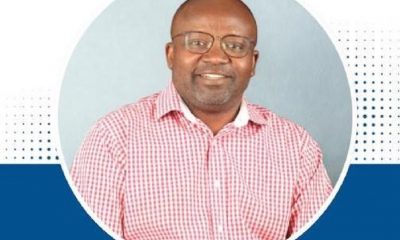

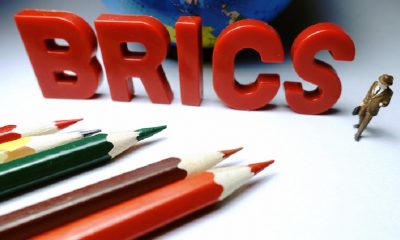

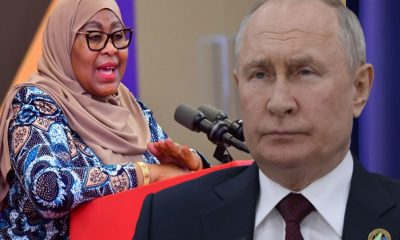

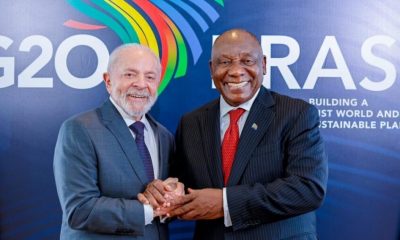

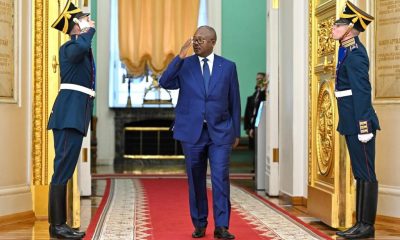

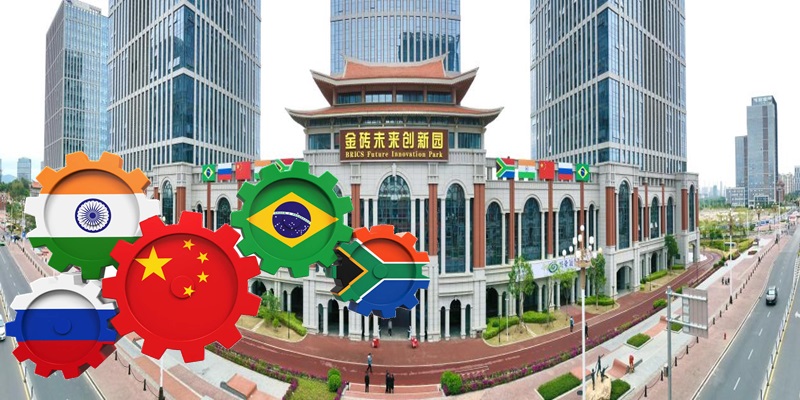











Pingback: Johannesburg Summit: A Critical Look at BRICS and Africa – African Budget Bureau